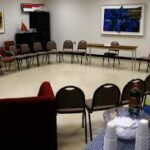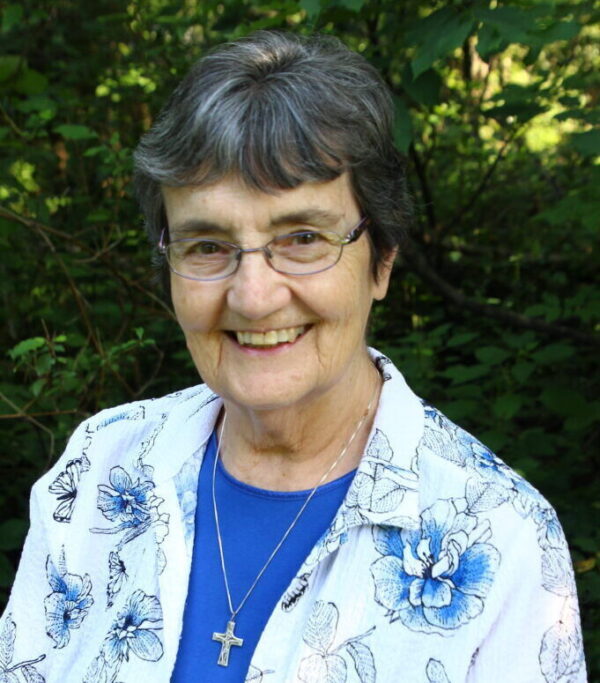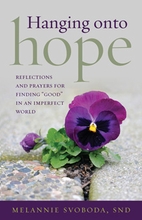I know a number of individuals who belong to Alcoholics Anonymous. They include men and women who are priests, nuns, and lay people. I have long been an admirer of A.A. I have also concluded that the Church could learn a lot from this organization.

First, a little background. Alcoholics Anonymous is a world-wide organization for individuals who have a problem with alcohol. It was founded in 1935 by Bill Wilson and Dr. Bob Smith in Akron, Ohio. Wilson and Smith learned that people could get sober basically by coming together regularly and by believing in each other and in the strength of the group. A.A. has a simple statement of purpose for its members: “to stay sober and help other alcoholics achieve sobriety.” Over time Wilson and Smith devised a Twelve Step Program that transcends gender, age, culture, and religious beliefs. Though A.A. rose out of the Christian tradition, it has proven effective for non-Christians and even for agnostics and atheists. (The phrase “Higher Power” used in A.A., for example, can mean different things to different people.) Current literature sets worldwide membership of A.A. at over 2 million. A recent survey of members in North America found that the average member of A.A. had achieved sobriety for 10 years.
What could the Church learn from A.A. ? Let’s begin with some words from Frederick Beuchner, a minister and author of Telling

Secrets. He says: “I believe that what goes on (at A.A. meetings) is far closer to what Christ meant his Church to be, and what it originally was.” He points out that A.A. has no buildings, no official leadership, and no money. It has no preachers, no choirs, no fund raising, no advertising, no proselytizing. Buechner says, “They make you wonder if the best thing that could happen to many a church might not be to have its building burn down and to lose all its money.” If this happened, Says Buechner, “Then all that the people would have left is God and each other.”
God and each other. That phrase lies at the heart of what A.A. is and what A.A. can remind the Church: the essence of our faith is not our buildings, creeds, or hierarchy. It is God and each other. (For Christian churches, of course, that word “God” includes Jesus—his life and teachings.) I am not saying we should get rid of our churches, our dogmas, or our leadership. But I am saying we must remember that these components of our faith are secondary, not primary. Someone described A.A. as a “fellowship of mutual aid.” That also seems like one definition of “church” to me.
Why is A.A. so effective? One reason is, it brings people together who share a common pain: the pain of addiction. A member of A.A. told me once that A.A. is “for people who have been to hell—or at least to the rim of hell.” A.A. demonstrates that pain and sorrow have the potential to unite us as nothing else can—not even our joy.
At A. A. meetings nobody lectures the members nor do they lecture each other. They simply tell their own stories—where they went wrong and how they are trying to get better day by day. Sometimes one of them will take special responsibility for another member by being available 24/7 if the need arises. There’s not much more to A.A. than that. Yet healing occurs and miracles happen. So effective has A.A. been that it has many “spin-offs” such as Overeaters Anonymous, Gamblers Anonymous, Debtors Anonymous, Clutterers Anonymous. (A.A. has its critics, of course. Some claim it is a cult, yet A.A. lacks a chief characteristic of most cults. A.A. does not force its members to stay.)
A.A. meetings often end with the reciting of the “Serenity Prayer,” written by American Theologian Reinhold Niebuhr in the 1930’s. It seems only fitting to conclude this reflection with that prayer:
Is there anything else the Church can learn from A.A.?
Have you ever shared your own story with others and listened to others tell theirs? If so, what was that experience like for you?
PS: Thank you for your many responses to last week’s blog on “Mottos and Slogans.” Your comments enrich my blog tenfold! Thank you too for your prayers for my retreat last week at the Franciscan Spiritual Center in Aston, PA. I had a group of prayerful, attentive, and fun-to-be-with women!








16 Responses
Thanks again for a wonderful reflection Sr. Melannie!
I have been on Keryx Prison retreats where inmates share their stories with such honesty. The community surrounding them loves these men without judgment. That kind of love is transforming to the men and to us. All we have is God and each other.
Kathleen
PS Bible Camp is this week. Please pray for the 47 youngsters who will be surrounded by God’s love and us.
Yippee! thank you so much Melannie. I have been
wanting to say this for so long and you have the words to
say it best. AA is always WELCOMING. You could come drunk to
an AA meeting and not be asked to leave( unless you are really
disturbing through physical 0r verbal abuse and even then someone will
leave with you and listen to you or try to calm you down)Everything in
AA is SUGGESTED not demanded.
Almost anything I hear on retreat or read in a spiritual book, I have
already heard or learned from AA. It is definitely a God-given program.
How else could a drunk surgeon and a drunk stock broker ever teach us
so much. Thanks a million for this blog.
(for the record–you also need a coffee pot besides a room and chairs 🙂 and most meetings or speakers start with the Serenity prayer and en
with the Lord’s prayer)
Hello Sr. Melannie, We in Naples still remember your wonderful retreat at St. Peter’s. Both of my children are A.A. members, one for more than 10 yrs. However, because she is a remarried divorced Catholic and the other because his God-given sexual orientation is considered sinful, the Church does not welcome them as A.A. does. At least our Pope Francis says “Who are we to judge.”
And for the record, most new AA meetings start with a coffee pot and a grudge! As we say…”We are not saints. … We claim spiritual progress, not spiritual perfection.”
Whoops! I meant that reply to be addressed to Mary Jame’s comment. Sorry!
Recently, I was graced to be part of a book discussion group on “Praying for Our Adult Sons and Daughters” by John and Therese Boucher. The authors cleverly weave examples from Scriptures, the writings of the saints, AA literature, and many other blessed resources to demonstrate the Christian pillars of surrender, trust, and wisdom. Ultimately, Christ invites us all, whether we sit in rented spaces on folding chairs, in cathedrals, or around our own small kitchen tables.
Enjoy a blessed week, Sister Melannie, and always, thank you.
Peace, Joanne
Am overjoyed by the theme of this week. AA continues to do marvels for those who suffer from alcoholism. Their family and friends also receive the support they need and the encouragement to bring healing to their own lives through Al-Anon and Al-A-Teeen. Those who practice the twelve steps are on a sure path towards faith in God and recovery. The steps provide a clear path to follow, beginning with the necessary admission of one’s own powerlessness,, leading to surrender of one’s life and will to God ” as we understand Him… and more«” The beginning of AA is rooted in Bill’s deep spiritual experience….
Sr. Melannie, thank you.
Thanks Melannie,
I’ve experienced the unconditional acceptance and love through Al-Anon. I’ve grown in my relationship with God and people through the kindness, love, example and sharing of Al-Anon members. I believe that everyone could benefit by being members of a 12-Step program.
Your blog is about everyday spirituality and that might be the best thing the church could adopt from AA. If you live in a large enough city, you can go to a “meeting” any day you want or need a meeting and not have to wait until Sunday. Someone volunteers to lead, you open with a prayer, the group picks a topic, the guideline for sharing is to share your own “experience, strength and hope.” You end with a prayer. There is no judgment because you are only speaking for yourself, yet someone will see themselves in your share, feel your hope, share your pain and joy, experience a sense of connectedness. Being connected is my one word definition for spirituality. Isn’t attending a “meeting” about being willing to connect (gather) in His name? And doesn’t the lack of an agenda seem to leave plenty of space for God to show up in strange and mysterious ways? I love knowing I have the opportunity to experience Every Day spirituality if I simply show up.
Isn’t it interesting that so many 12-Step meetings take place in the basements or lower levels of churches, much more in touch with the foundation of the building than the folks gathered in the sanctuary.
love the irony!
God is there wherever two or more are gathered in His name. Thanks for this article, Sr. Melannie.
This is for Evelyn Allen. Your daughter and son can both attend church and receive communion. I do not think it was Jesus’ that made all the rules about not eating, no sins, to be able to receive communion. As I recall he gave the first communion to the man that ratted him out. WE all need this link with Jesus. It helps us, and remember we are all made in the image of God, and he loves us unconditionally.
Remember WWJD? He does not deny graces or love to anyone for any reason, especially man-made reasons.
God is with us all.
Have read your books, your short writings in living faith and am happy to find your blog. Peace, Jim
Thank you Melannie….You said it so well. I am sure the Spirit speaks through you to all of us. 🙂